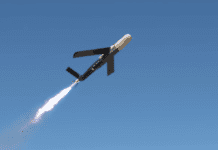This post is also available in:
 עברית (Hebrew)
עברית (Hebrew)
![]() By Prof. Zaki Shalom
By Prof. Zaki Shalom
INSS – Military and Strategic Affairs Program
לעברית לחץ כאן
 Recent violent events in Judea and Samaria, raised in Israel serious concerns of an outbreak of a third intifada in the occupied territories. So far there were two Intifada: the first began in December 1987 and was based primarily on broad demonstrations often accompanied by violent terrorist events. This Intifada was highly supported by the world’s public opinion, and to some extent – even by the Israeli public. It shook streams of international and internal pressure on the Israeli leadership to initiate an accelerated and concrete political process which eventually led to the Oslo Agreements. The Second intifada began in September 2000 and was characterized by murderous terrorist activity, mainly by suicide bombers on the home-front.
Recent violent events in Judea and Samaria, raised in Israel serious concerns of an outbreak of a third intifada in the occupied territories. So far there were two Intifada: the first began in December 1987 and was based primarily on broad demonstrations often accompanied by violent terrorist events. This Intifada was highly supported by the world’s public opinion, and to some extent – even by the Israeli public. It shook streams of international and internal pressure on the Israeli leadership to initiate an accelerated and concrete political process which eventually led to the Oslo Agreements. The Second intifada began in September 2000 and was characterized by murderous terrorist activity, mainly by suicide bombers on the home-front.
For an extended period of time Israel lacked the ability to effectively cope with those terrorist attacks . Only after Operation “Defensive Shield” a change had begun to emerge gradually and slowly. Eventually, Israel has demonstrated an impressive capability to cope with the Palestinian terrorism. In recent years the terrorist events scope scaled down drastically. It is possible to determine that terror today is not a significant factor affecting the regular life of the citizens of Israel.
It seems that the recent violence in Judea and Samaria is an expression of the Palestinian frustrations due to the ongoing stalemate in the peace process. Due to lack of international, in particular American, pressure on Israel to renew the dialogue with the Palestinian Authoriy, the prevailing assessment within the Palestinians is that this stalemate will continue in the foreseeable future. The turmoil in the Arab world leads the Palestinians to the conclusion that unless they undertake certain dramatic measures nothing would move the peace process.
We estimate that the P.A has an interest in a limited escalation of the violence. The Palestinians rightly assess that such an escalation would not justify drastic measures against them by Israel. At the same time they seem to believe that the rising tension would attract worldwide attention to their cause and would drive president Obama to undertake measures which might lead to the renewal of the peace process under their terms.
.
.
.
Prof. Zaki Shalo m is a senior researcher in the Ben Gurion institute for Israel’s Research, Ben Gurion University, and Senior Research Fellow at the Institute for National Security Studies (INSS).
m is a senior researcher in the Ben Gurion institute for Israel’s Research, Ben Gurion University, and Senior Research Fellow at the Institute for National Security Studies (INSS).
.
Illustration Pictures with courtesy of IDF’s spokesman unit

























